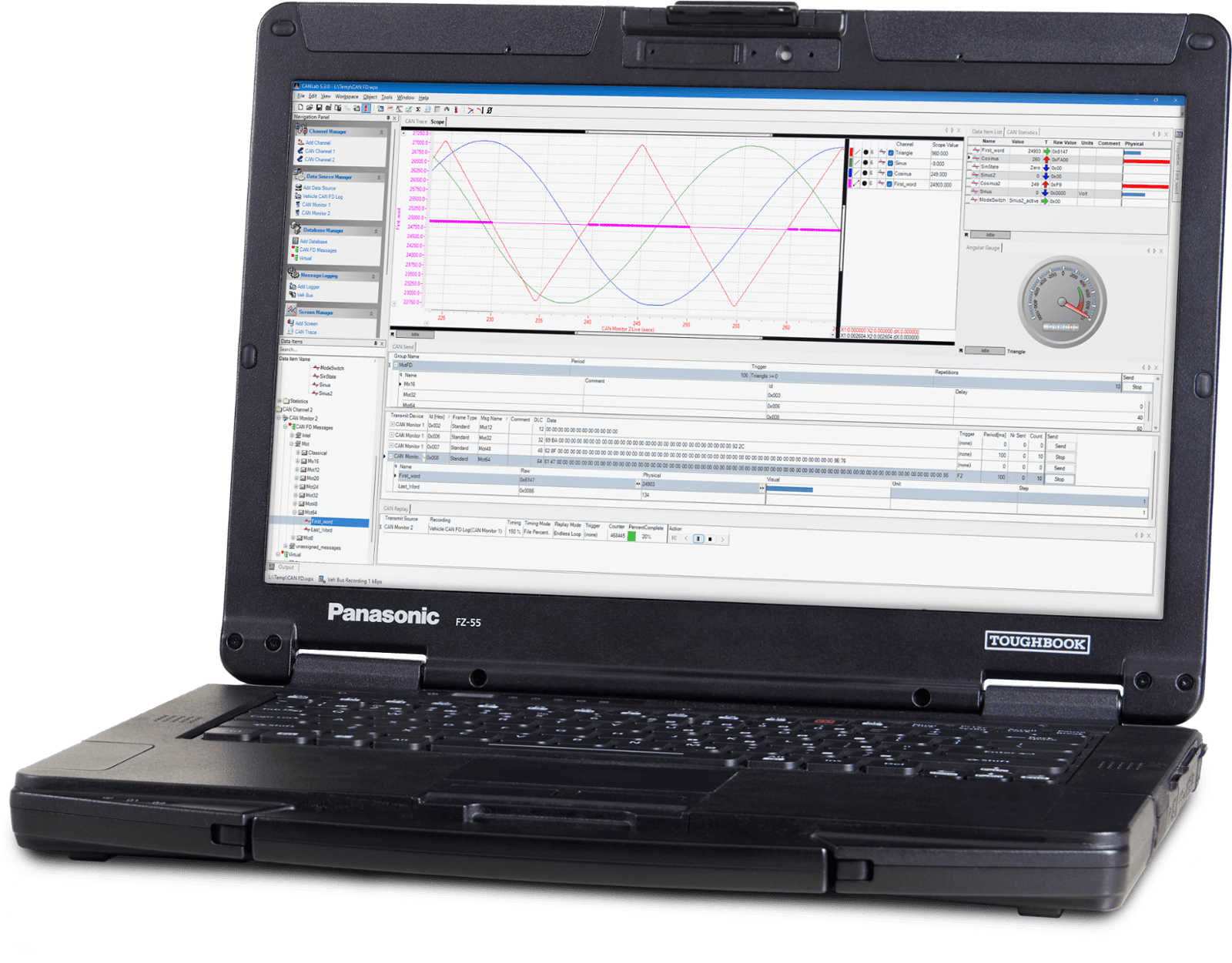And How CANLab by ATI Brings It All Together
In the world of automotive diagnostics and embedded systems, communication protocols are the unsung heroes that keep everything running smoothly behind the scenes. Among the many protocols that engineers encounter, CCP (CAN Calibration Protocol), XCP (Universal Measurement and Calibration Protocol), and KWP (Keyword Protocol) stand out due to their widespread use in vehicle calibration, diagnostics, and communication.
But decoding these protocols can be a real challenge without the right tools. That’s where protocol decoders come in—and if you’ve ever worked with CAN networks, you’ve probably heard of CANLab by Accurate Technologies Inc. (ATI).
Let’s break it all down.
CCP, XCP, and KWP: A Quick Overview
CCP (CAN Calibration Protocol)
Developed by ASAM, CCP is used primarily for real-time data acquisition and calibration in embedded control units (ECUs) over CAN. It allows engineers to access internal variables and parameters in a system without stopping it—vital for fine-tuning systems on the fly.
XCP (Universal Measurement and Calibration Protocol)
XCP is essentially the successor to CCP. It supports not just CAN, but also FlexRay, Ethernet, and USB. More flexible and scalable, XCP is ideal for today’s increasingly complex vehicle networks. It’s built to handle high-bandwidth communication needs while still enabling measurement and calibration of ECUs.
KWP (Keyword Protocol)
KWP2000 (ISO 14230) is often used for diagnostics, especially in OBD (On-Board Diagnostics). It operates over both CAN and K-Line and allows reading and clearing diagnostic trouble codes (DTCs), programming ECUs, and more. While newer protocols like UDS (Unified Diagnostic Services) are gaining traction, KWP is still common in legacy systems.

The Challenge: Decoding These Protocols
Anyone who’s worked with raw CAN traffic knows: it’s messy. Without protocol decoders, you're looking at a stream of hex data that offers little insight into what’s really happening on the network.
CCP, XCP, and KWP each add a specific layer of structure and meaning to CAN messages. A good decoder will interpret those layers, identify key operations (like downloads, measurements, or DTC reads), and display the results in human-readable form.
Enter ATI’s CANLab
CANLab by Accurate Technologies Inc. is a powerful, user-friendly platform that does just that. It’s built for engineers who need to interact with vehicle networks in real time—whether you're monitoring traffic, decoding protocols, or troubleshooting communication issues.
Here’s what makes CANLab shine when it comes to CCP, XCP, and KWP decoding:
Built-In Protocol Decoders: CANLab includes ready-to-use decoders for CCP, XCP, KWP, and others, saving time and reducing guesswork.
Custom Signal Mapping: You can define how variables and data points are visualized, making the experience tailored to your specific ECU or network setup.
Real-Time Analysis: CANLab enables real-time decoding and message filtering, essential for calibration engineers working in fast-paced environments.
Extensive Logging & Playback: Logging CAN traffic with decoded overlays makes debugging and documentation easier. You can also replay traffic to replicate scenarios.
Whether you're working on ECU tuning, vehicle diagnostics, or reverse engineering, tools like CANLab make protocol decoding far less painful—and a lot more insightful.




